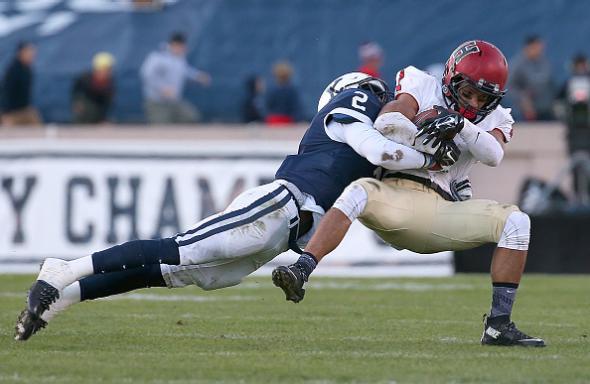Ivy League football coaches have voted unanimously to eliminate tackling and other full-contact hitting (e.g. blocking) from in-season practices as a safety measure, the New York Times reports. Full-contact hitting will still be permitted (within existing restrictions) during spring and preseason practice. From the Times:
The Ivy League’s new rule was inspired by one of its members, Dartmouth, where full-contact practices throughout the year were eliminated by Coach Buddy Teevens starting in 2010 to reduce injuries, including concussions, that kept players out of games and wore them down over the course of a season.
At first, some players and coaches worried that they would lose their competitive fire, Mr. Teevens said … “People look at it and say we’re nuts. But it’s kept my guys healthy.”
Dartmouth was one of the Ivy League’s three co-champions this season. Teevens—who has also coached at Florida and Stanford—told the Times that his players have sustained significantly fewer concussions and neck/back/shoulder injuries since he reduced full-contact practice time.
Slate’s Daniel Engber recently reviewed the available scientific evidence about football’s long-term health effects, writing that while ex-NFL players tend to live longer and are less likely to commit suicide than comparable members of the general population, they do disproportionately suffer neurological impairment and chronic pain:
The NIOSH study corroborates this disturbing fact: Ex-NFL athletes turned out to be significantly more likely than their peers to die from neurodegenerative diseases.
A 4.6-percent rate of memory-related disease in the Michigan study is disastrously high … Other injuries to former players—those that lead to chronic pain and arthritis—are about 10 times more common and could well be even more disabling.
The NFL allows a total 14 full-contact practices during its regular season; the NCAA allows two in-season full-contact practices each week.
